With 2021 arriving with high expectations, it is hoped that it will fulfil every travel desire that 2020 did not. Tanzania is a country full of wonder and excitement. With the backdrop of Kilimanjaro accompanying your descent into the airport, even the plane journey is filled with beauty. From the endless plains of the Serengeti to the watery maze of the Selous, the variety in flora and fauna makes the country one of the best wildlife viewing destinations in the world.
Chem Chem, Tarangire
Tarangire is the quietest parks in the North of Tanzania, yet its lack of visitors mean that wildlife sightings are private and often exclusive. The park is characterised by towering baobabs and a huge elephant population that increases throughout the dry season. Great additions to a safari here include incredible walking opportunities and night drives.
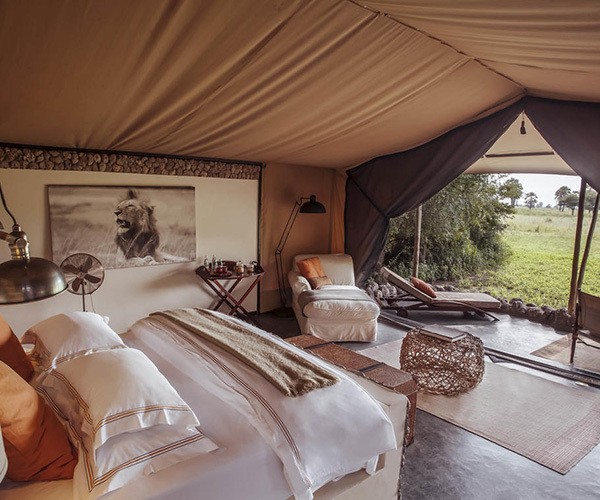
Chem Chem is the park’s most luxurious camp. Located in a private concession to the East of Lake Manyara and in the Northern reaches of Tarangire, you get access to both National Parks if wanted. With a gym, pool and spa Chem Chem has facilities not found in other Tarangire lodges. The eight rooms are canvas structures that are furnished exquisitely and overlook the surrounding wilderness. Tranquillity and peacefulness are the key here and will not only be found in camp, but out in the lodge’s private concession.
The Highlands, Ngorongoro
The Ngorongoro Crater is one of the world’s most renowned wildlife viewing areas on the planet. With an abundance of big-five plus so much more, it is no wonder that people flock here to witness the wildlife with such a unique backdrop. Providing excellent photographic opportunities, any first-time safari goer must visit.
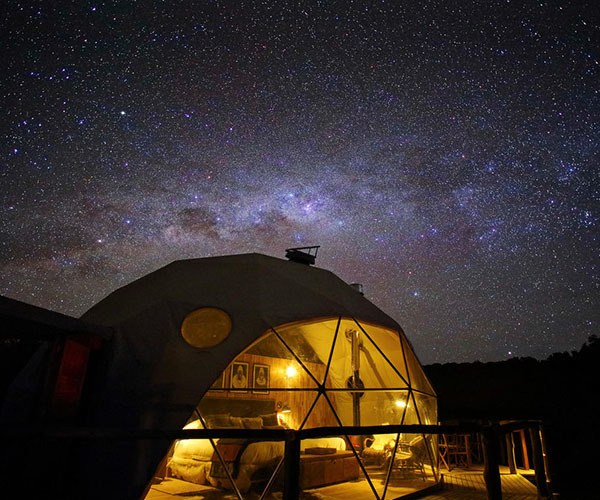
Asilia’s The Highlands is the stand-out lodge in the area; however, it bucks the trend seen by most lodges. Not based on the Crater’s Rim, The Highlands, had its own scenery to enjoy. Situated on the slopes of the Olmoti Crater, The Highlands is located half an hour from the Ngorongoro Crater itself. The location gives exclusivity and privacy which may not be found at other lodges in the area. From hiking in the mountains to visiting Masai Villages, this is the only camp in the area where a three-night stay would be worth it. The rooms are spectacular, shaped like domed bubbles you get beautiful views of the surrounding landscape no matter where you are in the room. Whilst it does get chilly up in the Ngorongoro region, the wood burner in the room, accompanied by heated blankets will keep you cosy and toasty all night long.
Lamai Serengeti, Serengeti
Nomad have a number of different camps throughout Tanzania and one of their standout properties is Lamai in the Kogatende region of the Serengeti. Home to the Great Wildebeest Migration, this annual phenomenon is a sight to behold and it comes to a climax between the months of July and October. During this period, the wildebeest put their lives at risk as they battle the raging current of the Mara River and the lurking predators who wait in ambush.
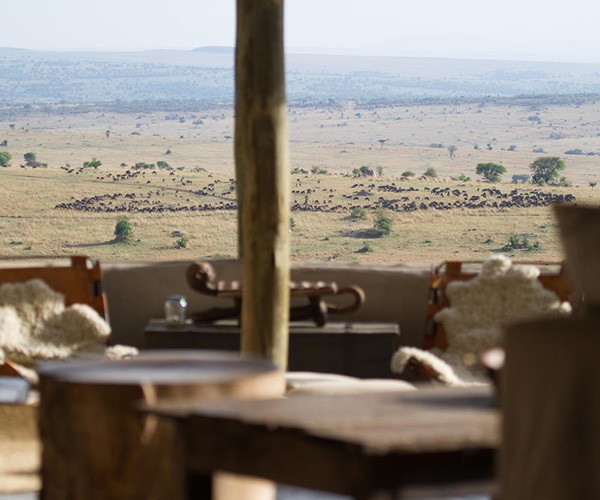
Lamai is Nomad’s permanent lodge, unlike their mobile camp, Serengeti Safari Camp, which moves throughout the year with the migration. Lamai is positioned amongst the kopjes that stud the Kogatende landscape and provide beautiful views across the surrounding area. The camp itself combines simple luxury with an authentic safari feel. Each of the eight spacious and airy rooms have private verandas that overlooks the plains, and a swimming pool means that any time in between game drives can be spent relaxing in peace.
Jongomero and Ikuka, Ruaha
Unlike the North of Tanzania, the Southern part of the country offers some beautiful off the beaten track safari experiences. None more so than Ruaha. Known for its huge buffalo herds and giant-hunting lion prides, Ruaha sees some of the most incredible wildlife spectacles in Africa and it is no surprise that National Geographic have filmed multiple documentaries there.
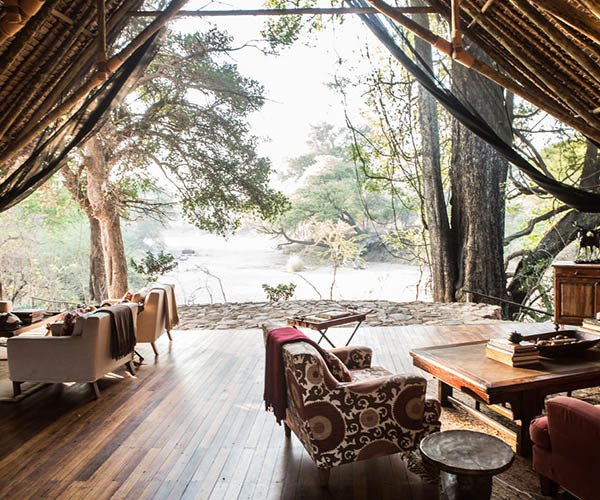
Jongomero is a permanent tented camp that sits overlooking a dry riverbed. Each room has views into the riverbed which attracts a brilliant array of wildlife. Located in the very South of the park, Jongomero is all alone surrounded by miombo woodland and meandering drainage lines that make it perfect for exploring. You will not see another vehicle on your game drive which makes it perfect for a safari of solitude.
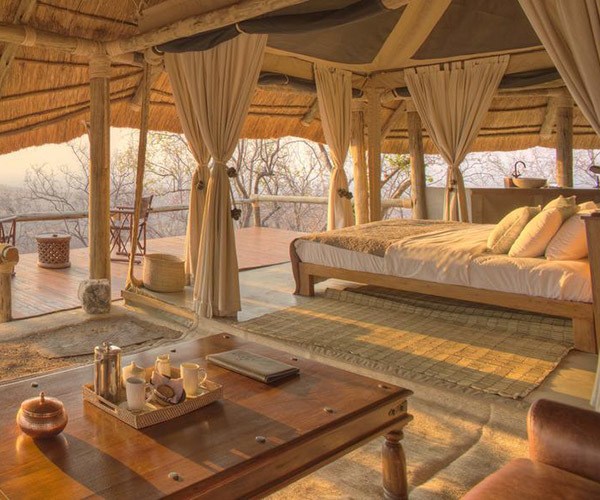
In the Northern section of Ruaha, there is a coming together of Eastern and Southern Africa flora and fauna. Ikuka is the pick of the camps here and positioned on one of Ruaha’s escarpments, it gives unparalleled views across the park. This small, owner run lodge is perfect for anyone wishing to feel like part of the family as soon as they enter. The open and spacious rooms offer incredible sights as far as the eye can see and the lounge and bar area is perfect for evenings of relaxation.
Sand Rivers, Selous
Unlike the dry and arid landscape of Ruaha, the Selous is a vast maze of waterways. Lush and vibrant, the Selous offers a completely different safari experience than anywhere else in Tanzania. Mirroring Ruaha, it receives a fraction of the visitors seen in the North of the country giving you a more private and intimate safari experience.
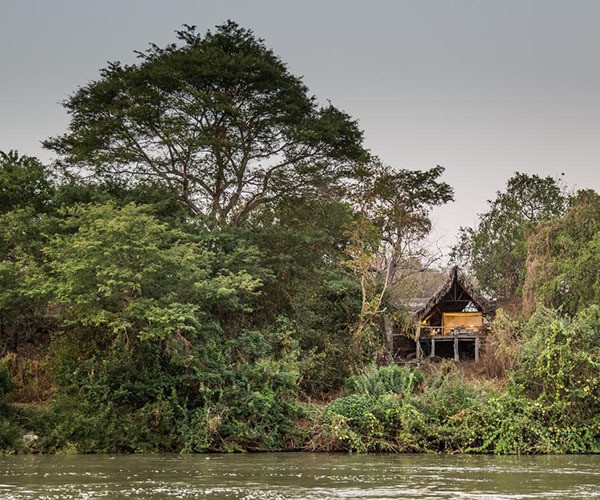
Nomad’s Sand Rivers overlooks the Rufiji River and is nestled amongst the trees. Boating safaris occur from the doorstep and game drives go in search of all things big and small including wild dogs. The Selous is one of the last strongholds for these enigmatic carnivores and with off-roading permitted, following a pack as they glide through their environment is a thrill quite like no other. The camp itself it beautifully entwined into its environment, epitomised by its bar built around one of the huge fig trees whilst maintaining a lavish and opulent style.
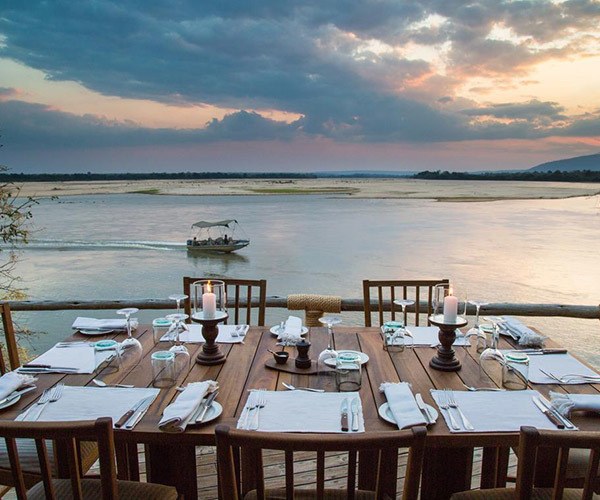
Every amenity you could wish for is provided and time in between game-viewing activities can be spent reclined by the pool side with a drink in hand whilst listening to the honking of hippos and chirping of birds.
Marc Harris is Managing Director of Tanzania Odyssey. Tanzania Odyssey is a leading tour operator that has specialised in Tanzania since 1998.
